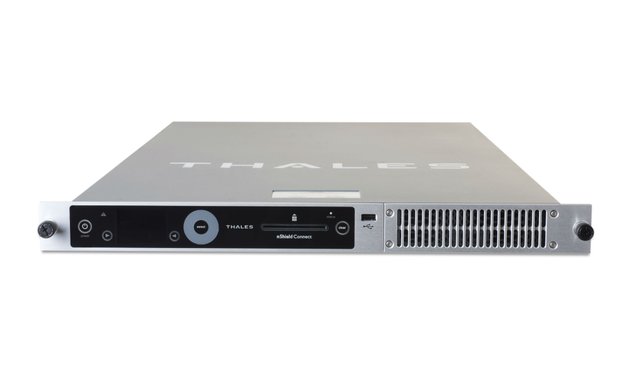Accenture and Thales combine blockchain technology and hardware security modules
Global professional services firm Accenture PLC and Thales e-security recently announced the launch of a patent-pending security system for enterprise use that, “creates a simple path to large-scale commercial use of blockchain technology,” according to Accenture.
Thales’ technology is found in enterprise finance, Aerospace, Transport, Defence and Security markets. With 62,000 employees in 56 countries, 25,000 of which are engineers and researchers, Thales deploys equipment and systems in some of the most complex security environments worldwide. As part of the Thales Group, Thales e-Security is the data security solutions and services branch that works with companies and governments to secure data.
“The possibilities for blockchain are endless,” said Jon Geater, the CTO of Thales e-Security. “In the financial sector everything from transactions to contracts and deeds could use a blockchain to legitimize and simplify the settlement process, and industries such as healthcare and federal government also stand to benefit from this technology…”
“Thales continues to invest in blockchain delivering the ‘root of trust’ to this emerging technology.” - Jon Geater, Chief Technology Officer at Thales e-Security
Accenture is a Global 500 corporation headquartered in Ireland. The professional Services company operates in over 120 countries and 40 industries, Accenture helps clients improve performance with over 394,000 employees. Accenture differentiates itself from the Big Four professional services firms with a more technology-driven focus, offering enterprise networking solutions as well as more typical services like strategy, consulting, and auditing.
Accenture’s new developer-friendly platform compliments Thales’ encryption based security systems. The software is purported to simplify the integration of blockchain technology into Thales flagship line of Hardware Security Modules (HSMs), which were designed to be secure storehouses for all kinds of digital keys, including most enterprise account access keys.
“Because those keys typically reside on software servers,” explains Accenture, “they can become vulnerable to network breaches of the kind that have occurred on cryptocurrency exchanges in recent years.”
The hardware does little else other than generate, protect and store digital keys in an ultra-secure environment. The only way to access a private key kept on an HSM is by following a strict protocol, keeping all user account keys and access codes stored on them safe from hackers.
If you’ve ever used a pin number at an ATM machine, swiped a card at a merchant point of sale device, or sent a bank transfer via the SWIFT network, you have already used HSMs. All kinds of security-minded functions in our world rely on the hardware to safeguard and manage our digital keys behind the scenes, in virtually any application that requires secure, verified digital signatures. Financial services, healthcare, and government are just some of the sectors that use Thales HSMs.
Marrying this technology together with blockchains seemed a natural fit, according to David Treat, the blockchain lead at Accenture. “The opportunity to benefit from blockchain technology within sectors like financial services and healthcare depends on an ability to protect digital keys using conventional standards of security.”
“While there have been bespoke blockchain integrations with HSMs before, this solution offers a simpler and more flexible standard to connect blockchain platforms with the leading HSMs.” - David Treat, Accenture Blockchain Lead
“Current applications cannot meet the high security standards of most mission-critical IT infrastructure,” states Simon Whitehouse, the senior managing director and head of blockchain technologies at Accenture states. “Our solution provides the same kind of physical security that banks have relied on for decades to keep money and transaction records safe from cyberthieves. It will clear a wider path not only for banks but for governments, insurers, healthcare providers and others to do real-world deployments of blockchain technology.”
The platform is built using Hyperledger’s Fabric technology and a custom Hyperledger permissioned blockchain. Hyperledger is a project of the Linux foundation, and created to advance blockchain technology by addressing important features in a cross-industry open standard.
Hyperledger Fabric is a platform that allows corporations, groups, or consortiums to manage existing blockchains, and spin up new ones on demand. The system is designed for enterprise use, while being open source, and leverages proven technologies. Its modular architecture allows for ledger data storage, smart contracts, cryptography, and other functions for blockchains to be used. According to Accenture, the new platform can also be easily adapted for various other types of blockchains.
“By creating a cross-industry open standard for distributed ledgers, virtually any digital exchange with value, such as real estate contracts, energy trades, marriage licenses, can securely and cost-effectively be tracked and traded.” - Hyperledger

This post has been ranked within the top 80 most undervalued posts in the first half of Feb 16. We estimate that this post is undervalued by $2.59 as compared to a scenario in which every voter had an equal say.
See the full rankings and details in The Daily Tribune: Feb 16 - Part I. You can also read about some of our methodology, data analysis and technical details in our initial post.
If you are the author and would prefer not to receive these comments, simply reply "Stop" to this comment.